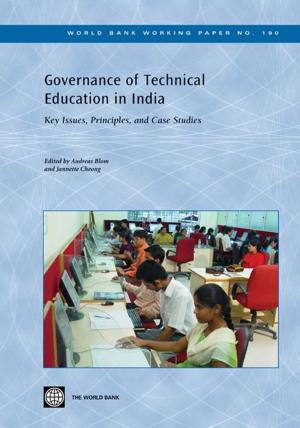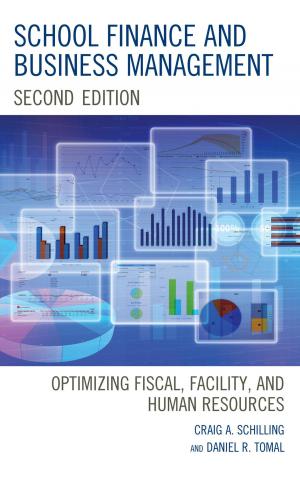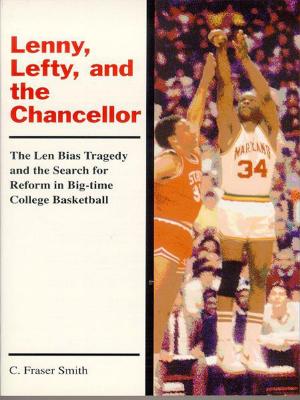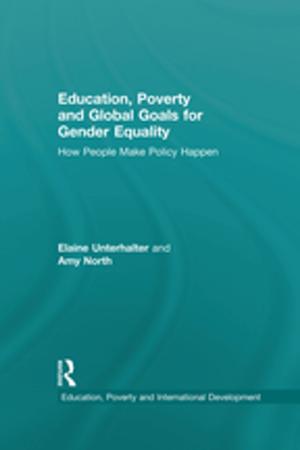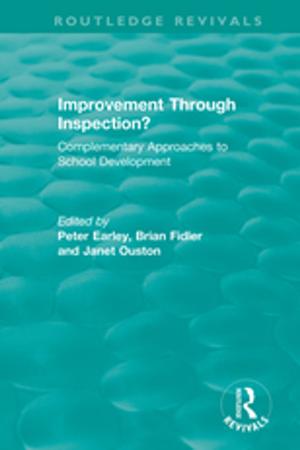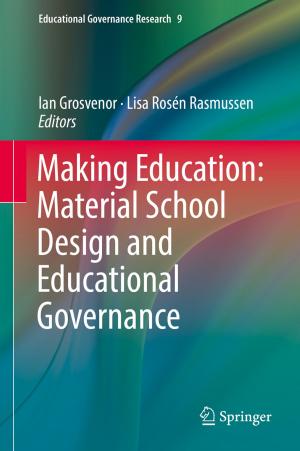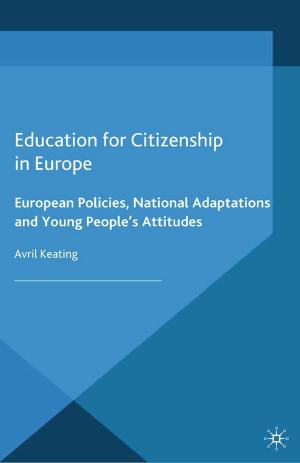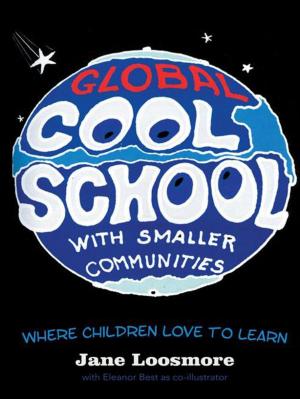8 Must-Ask Questions to Get the Best Education for YOUR Child - and How to Evaluate the Answers [minibook]
Nonfiction, Reference & Language, Education & Teaching, Parent Participation, Educational Theory, Educational Reform| Author: | Joanne McEachen | ISBN: | 9781301022557 |
| Publisher: | Joanne McEachen | Publication: | December 4, 2012 |
| Imprint: | Smashwords Edition | Language: | English |
| Author: | Joanne McEachen |
| ISBN: | 9781301022557 |
| Publisher: | Joanne McEachen |
| Publication: | December 4, 2012 |
| Imprint: | Smashwords Edition |
| Language: | English |
Don't waste another precious day of your child's education!
We’ve got 8 cut-to-the-chase questions you can use to start a learner-focused conversation with your local school. Don’t be afraid to ask them!
If all parents started asking questions like these – if parents were informed, demanding consumers of education – school leaders and teachers would sit up and take notice. Things would change. It would help schools figure out what to focus on.
Question 1: What do you consider to be a good success rate for student achievement at your school?
Question 2: How will you make sure my child is happy at school?
Question 3: How does your school help kids like mine learn?
Question 4: How do you make sure what’s taught in the classrooms is meaningful to the kids?
Question 5: What are your priorities, as a leader, in this school? What do you spend your time and money on?
Question 6: What are your top priorities right now for lifting student achievement – and how are you going about doing it?
Question 7: How do I, as a parent, have a say in my child’s education here?
Question 8: How will you make a decision about which teacher to place my children with?
OK, so you ask the questions, but then what? We also give you a rating guide for how to evaluate the answers and interpret what educators are telling you.
Best practice: These guys really get it. They are engaging me/us in a powerful way. They really know my child, who she is, what she wants to become, etc. They know what they are doing and can help my child realize her potential. They have some really excellent evidence showing that they can and will succeed – and have done so already.
Pretty good: They have connected with me as a parent. They know my child and how to teach her. Some good practices are in place and there is some concrete evidence that they work. I’ll be able to work well with them to help my child get the most of her education.
Well intentioned: Their hearts are in the right place. There is genuine commitment but no clear strategies are in place. They are trying some things with good intentions, but they don’t really know what to do.
Lip service: They have mastered the lip service, but not the action. It’s all talk, and nothing really changes for the children.
They don’t get it: They don’t respond to the question directly or dismiss the issue.
Of course, you won’t get school leaders giving the exact answers we highlight under each question, although it might be close. But even if they say it in different ways, just by asking the questions and having the conversations, you are starting to change what happens for your child.
Joanne McEachen is an internationally recognized educational expert now based in Seattle, Washington, with a 3-decade successful track record working at multiple levels in the system – as a school principal, a regional administrator, and national manager for the Ministry of Education in New Zealand.
Joanne has seen firsthand the importance of involving parents in their children’s education and knows the positive difference it can make. Joanne believes that there is an urgent need in education today to stop the blame game for the systemic failure of the groups of children who are continuously being underserved – it’s time to get on with it!
Dr. E. Jane Davidson is known internationally as a keynote speaker and author for her cutting-edge work in evaluation. Her e-minibook, Actionable Evaluation Basics: Getting Succinct Answers to the Most Important Questions is a popular practical guide to doing truly useful evaluation.
Jane uses a multidisciplinary and refreshingly practical, plain-language approach to figuring out what’s going to work and how we’ll know it has.
She helps schools and other organizations infuse outcome-focused evaluative thinking into their work; develops tools and methodologies to support change; and supports inquiry and self-review.
Don't waste another precious day of your child's education!
We’ve got 8 cut-to-the-chase questions you can use to start a learner-focused conversation with your local school. Don’t be afraid to ask them!
If all parents started asking questions like these – if parents were informed, demanding consumers of education – school leaders and teachers would sit up and take notice. Things would change. It would help schools figure out what to focus on.
Question 1: What do you consider to be a good success rate for student achievement at your school?
Question 2: How will you make sure my child is happy at school?
Question 3: How does your school help kids like mine learn?
Question 4: How do you make sure what’s taught in the classrooms is meaningful to the kids?
Question 5: What are your priorities, as a leader, in this school? What do you spend your time and money on?
Question 6: What are your top priorities right now for lifting student achievement – and how are you going about doing it?
Question 7: How do I, as a parent, have a say in my child’s education here?
Question 8: How will you make a decision about which teacher to place my children with?
OK, so you ask the questions, but then what? We also give you a rating guide for how to evaluate the answers and interpret what educators are telling you.
Best practice: These guys really get it. They are engaging me/us in a powerful way. They really know my child, who she is, what she wants to become, etc. They know what they are doing and can help my child realize her potential. They have some really excellent evidence showing that they can and will succeed – and have done so already.
Pretty good: They have connected with me as a parent. They know my child and how to teach her. Some good practices are in place and there is some concrete evidence that they work. I’ll be able to work well with them to help my child get the most of her education.
Well intentioned: Their hearts are in the right place. There is genuine commitment but no clear strategies are in place. They are trying some things with good intentions, but they don’t really know what to do.
Lip service: They have mastered the lip service, but not the action. It’s all talk, and nothing really changes for the children.
They don’t get it: They don’t respond to the question directly or dismiss the issue.
Of course, you won’t get school leaders giving the exact answers we highlight under each question, although it might be close. But even if they say it in different ways, just by asking the questions and having the conversations, you are starting to change what happens for your child.
Joanne McEachen is an internationally recognized educational expert now based in Seattle, Washington, with a 3-decade successful track record working at multiple levels in the system – as a school principal, a regional administrator, and national manager for the Ministry of Education in New Zealand.
Joanne has seen firsthand the importance of involving parents in their children’s education and knows the positive difference it can make. Joanne believes that there is an urgent need in education today to stop the blame game for the systemic failure of the groups of children who are continuously being underserved – it’s time to get on with it!
Dr. E. Jane Davidson is known internationally as a keynote speaker and author for her cutting-edge work in evaluation. Her e-minibook, Actionable Evaluation Basics: Getting Succinct Answers to the Most Important Questions is a popular practical guide to doing truly useful evaluation.
Jane uses a multidisciplinary and refreshingly practical, plain-language approach to figuring out what’s going to work and how we’ll know it has.
She helps schools and other organizations infuse outcome-focused evaluative thinking into their work; develops tools and methodologies to support change; and supports inquiry and self-review.
![Cover of the book 8 Must-Ask Questions to Get the Best Education for YOUR Child - and How to Evaluate the Answers [minibook] by Joanne McEachen, Joanne McEachen](https://www.kuoky.com/images/2012/december/500x500/9781301022557-nCyY_500x.jpg)
